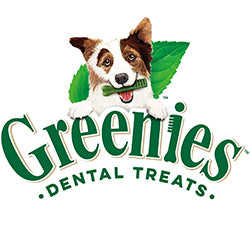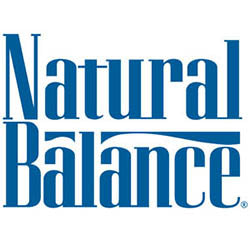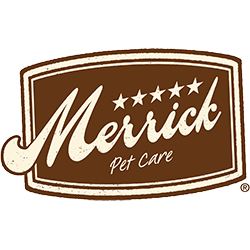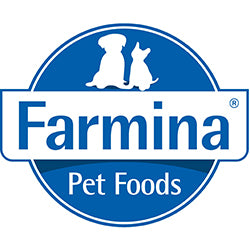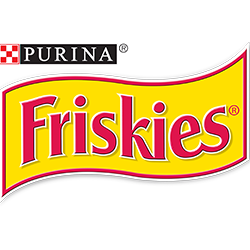
Understanding the importance of dental care for pets
Pets Need Dentists Too: Unraveling the Significance of Dental Care for Our Furry Friends
When we talk about our pets' health, we often think about their nutrition, exercise, and regular check-ups. However, there's an equally critical aspect that often gets overlooked - dental care. Just as we pay attention to our oral health, our pets need the same care and consideration for their teeth and gums. This comprehensive blog post delves into the importance of dental care for pets, how to maintain it, and the consequences of neglecting it.
1. The Prevalence and Impact of Dental Diseases in Pets
Dental diseases, particularly periodontal disease, are among the most common health issues plaguing pets today. It's estimated that most dogs and cats show signs of disease orally by the age of three. These issues are not just confined to bad breath; they can lead to severe complications like pain, tooth loss, and even systemic issues affecting the heart, liver, and kidneys. This highlights the need for regular dental care for our pets.
2. Understanding the Basics of Pet Dental Care
The foundation of pet dental care lies in two key aspects: regular home care and professional dental check-ups. Home care includes brushing your pet's teeth daily with pet-safe toothpaste, providing dental treats and toys designed to have less tartar and plaque build-up, and maintaining a balanced diet.
Professional dental care involves regular vet visits for oral examinations. Your vet can identify early signs of dental diseases and take necessary steps to treat them before they become severe. They may also perform professional teeth cleanings, which involve scaling to remove plaque and tartar, polishing, and sometimes, tooth extractions.
3. The Consequences of Neglecting Dental Care
Neglecting dental care can have a multitude of repercussions for pets, commencing with unpleasant breath and teeth discoloration, escalating to more grave conditions like gingivitis and periodontitis. Without appropriate treatment, these ailments could potentially result in tooth loss and even systemic infections that pose a serious threat to life.
Moreover, dental problems can cause significant discomfort and pain, affecting your pet's appetite and quality of life. They may become irritable and lethargic and display changes in behavior due to the constant discomfort.
4. Breaking Down the Myths Surrounding Pet Dental Care
There are several misconceptions about pet dental care that often prevent pet owners from taking it seriously. One common myth is that pets naturally have bad breath. While it's true that pets don't have minty-fresh breath, extremely horrible breath is often a sign of underlying oral issues and should not be overlooked.
Another common myth is that dry food cleans a pet's teeth. While dry food may be slightly better than wet food at reducing plaque, it doesn't eliminate the need for regular brushing and professional cleanings.
5. Creating a Dental Care Routine for Your Pet
Having a daily dental care routine for your pet is crucial. Start by gradually introducing your pet to having their teeth brushed. Use pet-safe toothpaste and a suitable toothbrush. A finger brush can often be a good starting point.
Introduce dental-focused treats and toys as a part of your pet's daily activities. They not only keep your pet amused but also contribute significantly to decreasing the accumulation of plaque and tartar. Furthermore, ensure you arrange routine dental examinations with your vet. Such visits allow potential oral problems to be spotted and treated promptly.
6. The Connection Between Dental Health and Overall Well-being
Good dental health is intrinsically linked with your pet's overall well-being. Healthy teeth and gums gives a healthy digestive system, as your pet can chew food properly. Additionally, by preventing oral bacteria from entering the bloodstream, you reduce the risk of systemic diseases affecting the heart, liver, and kidneys.
In conclusion, dental care is a fundamental aspect of pet health that deserves our attention. By spending time and effort into maintaining your pet's dental health, you can ensure that they live a long, healthy, and comfortable life. Always remember, your pet's smile is priceless - make sure you do everything to keep it bright and healthy!
When we talk about our pets' health, we often think about their nutrition, exercise, and regular check-ups. However, there's an equally critical aspect that often gets overlooked - dental care. Just as we pay attention to our oral health, our pets need the same care and consideration for their teeth and gums. This comprehensive blog post delves into the importance of dental care for pets, how to maintain it, and the consequences of neglecting it.
1. The Prevalence and Impact of Dental Diseases in Pets
Dental diseases, particularly periodontal disease, are among the most common health issues plaguing pets today. It's estimated that most dogs and cats show signs of disease orally by the age of three. These issues are not just confined to bad breath; they can lead to severe complications like pain, tooth loss, and even systemic issues affecting the heart, liver, and kidneys. This highlights the need for regular dental care for our pets.
2. Understanding the Basics of Pet Dental Care
The foundation of pet dental care lies in two key aspects: regular home care and professional dental check-ups. Home care includes brushing your pet's teeth daily with pet-safe toothpaste, providing dental treats and toys designed to have less tartar and plaque build-up, and maintaining a balanced diet.
Professional dental care involves regular vet visits for oral examinations. Your vet can identify early signs of dental diseases and take necessary steps to treat them before they become severe. They may also perform professional teeth cleanings, which involve scaling to remove plaque and tartar, polishing, and sometimes, tooth extractions.
3. The Consequences of Neglecting Dental Care
Neglecting dental care can have a multitude of repercussions for pets, commencing with unpleasant breath and teeth discoloration, escalating to more grave conditions like gingivitis and periodontitis. Without appropriate treatment, these ailments could potentially result in tooth loss and even systemic infections that pose a serious threat to life.
Moreover, dental problems can cause significant discomfort and pain, affecting your pet's appetite and quality of life. They may become irritable and lethargic and display changes in behavior due to the constant discomfort.
4. Breaking Down the Myths Surrounding Pet Dental Care
There are several misconceptions about pet dental care that often prevent pet owners from taking it seriously. One common myth is that pets naturally have bad breath. While it's true that pets don't have minty-fresh breath, extremely horrible breath is often a sign of underlying oral issues and should not be overlooked.
Another common myth is that dry food cleans a pet's teeth. While dry food may be slightly better than wet food at reducing plaque, it doesn't eliminate the need for regular brushing and professional cleanings.
5. Creating a Dental Care Routine for Your Pet
Having a daily dental care routine for your pet is crucial. Start by gradually introducing your pet to having their teeth brushed. Use pet-safe toothpaste and a suitable toothbrush. A finger brush can often be a good starting point.
Introduce dental-focused treats and toys as a part of your pet's daily activities. They not only keep your pet amused but also contribute significantly to decreasing the accumulation of plaque and tartar. Furthermore, ensure you arrange routine dental examinations with your vet. Such visits allow potential oral problems to be spotted and treated promptly.
6. The Connection Between Dental Health and Overall Well-being
Good dental health is intrinsically linked with your pet's overall well-being. Healthy teeth and gums gives a healthy digestive system, as your pet can chew food properly. Additionally, by preventing oral bacteria from entering the bloodstream, you reduce the risk of systemic diseases affecting the heart, liver, and kidneys.
In conclusion, dental care is a fundamental aspect of pet health that deserves our attention. By spending time and effort into maintaining your pet's dental health, you can ensure that they live a long, healthy, and comfortable life. Always remember, your pet's smile is priceless - make sure you do everything to keep it bright and healthy!
- Choosing a selection results in a full page refresh.




